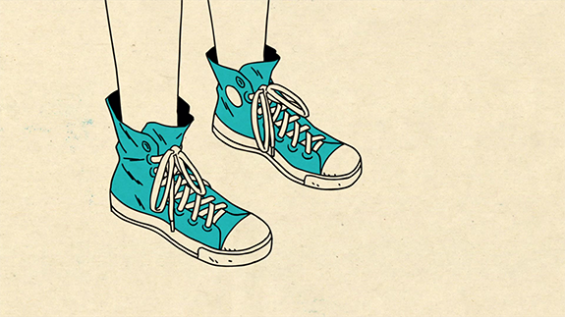
TED-ED Clubs asks: How do you talk about depression?
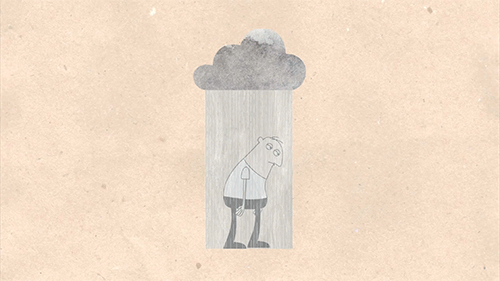
I grew up in love with stories. There were days when I’d refuse to go outside or come to dinner because I had my nose in a book, or was trying to write one. My earliest dreams and aspirations came from the characters I read about. But I only thought about their strengths and not about their weaknesses. So when I started presenting at local schools about reading and writing, I built an impossible definition of the character I should play. I wanted to be the “good teacher” — knowledgeable, eloquent and invulnerable. I thought this was the only way to be inspiring.
Be perfect, I told myself while spinning stories on a beat-up laptop with eager elementary school students, because everyone’s watching.
This desire was ironic because I told those students time after time, “Make your characters three-dimensional. Give them strengths and weaknesses.” Yet the very flaws I asked students to make transparent in the pages they wrote, I tried to hide in my own character.
After my TED Talk, I turned 13. I got to hear words like “You’re an inspiration” and “I look up to you.” I traveled to Mexico, France, Switzerland, India, and Sri Lanka — over the course of two months — just for speaking engagements. By anyone’s standards, I was on top of the world. Yet in less than two years, I had filled two journals. Almost every entry started with the words, “I feel sad today.”
It was only after this long sadness had ebbed, passing with an uncharacteristic gentleness, that I felt like I could tell anyone else. I turned 14, and I confessed — about the crying, the journaling, the emptiness — to my best friend.
“Why didn’t you say anything before?” she asked, aghast. A part of me was surprised, as if I had expected a reprimand for a different thing — for having the long sadness, not for staying silent.
I resolved not to stay silent anymore. I turned 15, and I slowly expanded the number of people that I told about who I was when cameras were off and my door was closed. I started writing about small failings and insecurities on my blog. One post — about my poor performance on the SAT’s math section — earned me a then-boyfriend’s horror, a summer of precalc tutoring — and an outpouring of support from friends. Friends shared my post out on their Facebook walls and added their own stories of less-than-stellar academic performance. “None of us have it all figured out,” I wrote in that blog post, adding, “You’re not alone. You never have been.”
Around the world, we’ve seen a number of TED-Ed Club members share their own stories about depression and difficult times.
If you’re working on a TED-Ed Club talk about depression, below are some helpful links on the topic:
- World Suicide Prevention Day is September 10. Read suicide prevention tips for kids and teens, watch Kevin Briggs’ TED Talk: The bridge between suicide and life, learn the warning signs and explore the link to depression. The National Suicide Prevention Hotline is 1-800-273-TALK.
- What is depression exactly, and what are some causes and solutions? Find a general overview of the scientific and social elements of depression on ASAP Science and Crash Course, watch Andrew Solomon’s TED Talk: Depression, the secret we share, and take the TED-Ed Lesson: A brief history of melancholy.
- If you’re interested in the biological and public health side of mood disorders, you can research symptoms and prevalence of depression (and find comprehensive mental health statistics) using information from the National Institutes of Health. If you’re interested in how to practice emotional first aid, read this short TED article.
- The British actor and comedian Stephen Fry wrote of depression, “It’s not all bad. Heightened self-consciousness, apartness, an inability to join in, physical shame and self-loathing—they are not all bad. Those devils have been my angels. Without them I would never have disappeared into language, literature, the mind, laughter and all the mad intensities that made and unmade me.” You can explore the link between depression and creativity in this New York Times piece, “Depression’s Upside.”
- To see two students’ powerful testaments of personal experiences with depression, watch slam poetry performances like “Explaining My Depression to My Mother” and “Living With Depression.”
Whether you choose to speak about depression on the societal, personal or even molecular level, know that you are shedding light on an important topic when you present your ideas to others with confidence. Courage is contagious, and building a society that is more open and less judgmental begins when you start speaking up.
More than 10,000 students are now sharing and presenting their ideas in TED-Ed Clubs around the world. Interested in starting a TED-Ed Club at your school? Find out more.
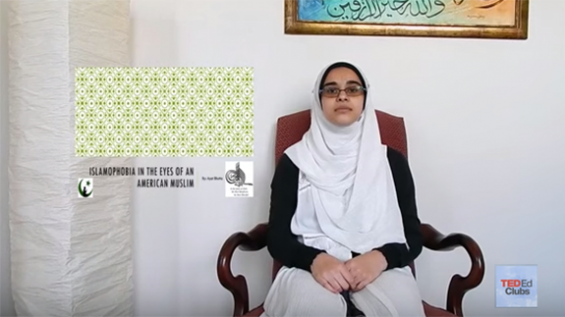
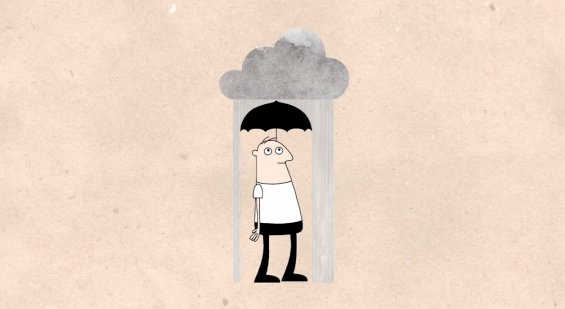
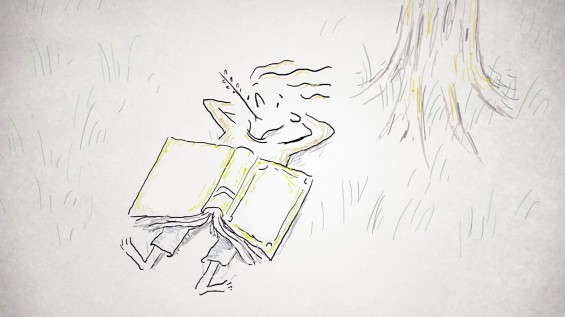
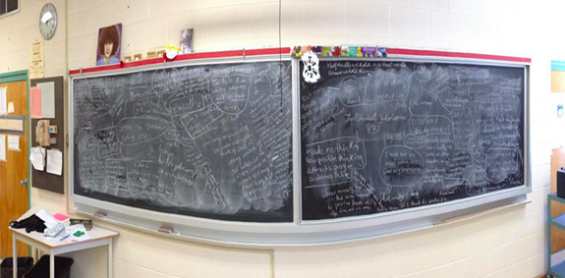
I always wonder why it is so rare to find something about depression from the point of view of the one who’s in a relationship with a depressed person. There’s so little that can be of help for the ones who wants to help both the partner and themselves, tu better understand, and be of support for his or hers partner who’s suffering from depression. I hope there will be more in the future since I think a supportive partner can help so much
A depressed person can gain some relief from it by becoming more active. This is usually possible and there is no need to go and hunt for the up-side to depression if you can manage to keep going. It is particularly useful when your activity is helpful to somebody else. Knowing of this and being aware of oneself are guides to avoiding depression too.
Hi! I talk about depression in little sound bytes here and there. When someone else shares (maybe on social media) a struggle that could be a symptom of depression, I might comment that I feel the same when my depression kicks in. I have shared Andrew Solomon’s TED talk on my timeline and asked my family to watch it. Hearing important insights into depression from someone who is easy to respect like Soloman was very helpful to my husband. One of my daughters was not interested in watching it because, “That sounds depressing.” ; )
I was told that I was probably clinically depressed from the age of 8, actual words out of the Doctors mouth as I sat looking across a desk at her. I was 21 at the time. I’m 42 now. You can add to that diagnosis PTSD, OCD, & a few other “D’s” that have been fighting to be #1 on my list. It amazes me how disorders can become & overtake a person, they are very selfish.
That Doctor should have told me I have depression instead of I am depressed.
I AM A PERSON! I have disorders, but they don’t make me. So I cry when I need to, I sing when I need to, I laugh as often as possible, and I don’t take pills. I eat healthy and love. This last part has been the cure.
Like most people my disorders come from times in life when nothing was in order. Or important roles were out of order. For example my father treated me like his wife. So to put myself back in order I started doing acts of love. This works!!! Helping put in order that which is out, (look around, were drowning in disorder) will cure disorders. Depression has been the hardest to overcome. I will never not be depressed. However I’ve also learned that depression is a sign of health. How can you not be somewhat depressed if you’re honest and aware of your surroundings. We are all surrounded with disorder. It’s sad! So embrace depression and learn from it. Love those around you, listen to their sadness and share something with them. And to all those out there who are trying to help us depressed ones, just listen. It is human nature to send signals of what we need out to others. And if abandonment issues are involved it will take an extra long time. One more thing, it’s okay to be sad about bad things that happen to people, I’d argue it’s healthy and if you’re not feeling sad about it, well what’s wrong with you? I sometimes think that if more people were depressed the world might be a better place.
At times what gets lost in translation is the appropriate or inappropriate manner in which a doctor posses the question. My primary care physician knows that I’m a mental health counsel and before he did a depression screening he acknowledged my expertise. I’m an expert but his job was to screen me for depression even though I Was not depressed it was part of the physical exam he gave me. Depression comes in many forms and can affect us at different stages of our lives. If we are lucky enough to live a long life we will experience many moments of joy and many moments of sadness due to the loss of loved ones due to illnesses or heart breaks. Depression is part of our lives, our friends and relatives can be affected by it at different stages of our lives and affect out interactions with them. We might try hard to help them but at the end of the day it’s their decision to seek help or not.